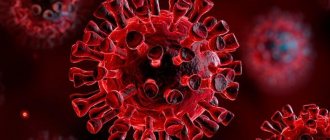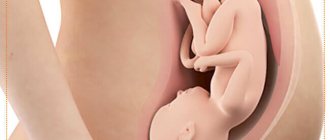The head is heavy and presses: reasons, how to get rid of it
Heaviness in the head may indicate the development of the disease.
Similar symptoms can appear as a result of overwork, poor diet (thirst, hunger), stress, or injury to the head. If the symptoms are caused by a disease, a neurologist will help determine the exact cause.
More often, such a symptom occurs as a result of pathological processes that affect parts of the central nervous system, less often when the disease affects other organs and systems.
Characteristics of the condition
A heavy head is a condition that patients describe as a feeling of unclear, cloudy consciousness. The head feels as if it is made of cotton – a sensation similar to what occurs in an arm or leg when the limb is numb. Often the head feels as if it is leaden with a feeling of pressure from within. Symptoms are complemented by retardation of thinking and impaired orientation in space.
In this case, a feeling of heaviness in the eyes and head is accompanied by a deterioration in cognitive abilities. The person does not think well, his memory and mental activity deteriorate.
It is difficult for him to concentrate, concentrate on work, perceive and process new information.
Constant fatigue and a feeling of cloudiness in the head interfere with communication, performing household and job duties.
Causes
The causes of heaviness in the head are often associated with physical and mental fatigue. In this case, the discomfort goes away spontaneously after a long, complete rest.
Cloudiness in the head occurs due to an unhealthy lifestyle (abuse of alcohol, drugs, physical activity at night, irregular diet) or due to a pathological process.
Common causes of development:
- Lack of sleep, sleep disorder. Often, a feeling of vagueness inside the skull appears after prolonged sleep, which is usually associated with poor rest hygiene or venous stagnation. To prevent discomfort, it is necessary to ventilate the room before going to bed and choose comfortable bedding (pillow, mattress).
- Poor nutrition. A deficiency of important nutrients - vitamins, microelements, protein, healthy fat (olive oil, avocado, sea fish) leads to the feeling that the head is plagued. Disturbances can be triggered by the consumption of foods that cause an allergic reaction.
- Chronic stress. Regular exposure to stress has a negative impact on health, leading to the development of depression, insomnia and discomfort in the skull area.
- Taking pharmaceutical drugs and nutritional supplements. Some medications (anticonvulsants, painkillers, statins, antidepressants, sleeping pills and sedatives, acetylsalicylic acid) provoke the development of fuzzy head syndrome.
- Increased blood pressure levels. Any deviations in blood pressure values from the norm can provoke a feeling that there is cotton wool inside the skull.
- Meniere's disease, vestibular disorders. Pathologies of the vestibular system are one of the likely causes of the feeling of a cloudy head.
- Thyroid dysfunction. Excess and lack of hormones lead to an unpleasant feeling inside the skull.
- Concussion, brain contusion. Suffered TBIs cause a condition where the head is dizzy, there is pressure on the ears and there is a pressing pain in the area of the skull. Disturbances occur in the acute period and can be observed much later than the episode of TBI, transforming into post-traumatic syndrome.
The feeling of a heavy head can occur against the background of inflammatory processes occurring in the respiratory, visual and hearing organs. Pathologies of the heart and vascular system can provoke the appearance of symptoms. Damages to the joints and other structures of the musculoskeletal system are often accompanied by a condition where clouding occurs in the head.
Possible diseases
Discomfort in the head occurs due to metabolic disorders. For example, a lack of glucose, which is a nutrient for nerve tissue, leads to a feeling of foggy haze in the head.
Additional signs include irritability, increased sweating, weakness, rapid heartbeat, inability to concentrate, and confusion.
Associated symptoms will help make a differential diagnosis and prescribe the correct treatment.
Vegetovascular dystonia
A heavy head is a symptom that is often observed with VSD. Vegetative-vascular dystonia develops as a result of disruption of the regulatory functions of the central nervous system and is accompanied by a change in the tone of the vascular wall.
Associated symptoms: pain in the heart area, general weakness, increased fatigue, respiratory failure (rapid, shallow breathing, feeling of lack of air), cardiac arrhythmia (rapid heartbeat).
Symptoms may be observed: darkening of the eyes, feeling of chills or heat, tremors of the limbs.
Impaired blood circulation and liquor dynamics
Pathology caused by venous congestion in the skull area is manifested by heaviness in the head, dizziness, and weakness. Patients describe sensations as if they were pressing, bursting from the inside.
The condition is accompanied by a dull pain in the area of the skull.
In most cases, the pathological focus is limited to the occipital region, sometimes unpleasant sensations spread throughout all parts of the skull.
If the venous outflow is disrupted, the constant feeling of a heavy head, which hurts and is dizzy, intensifies if the patient remains in a horizontal position for a long time, for example, after a night's sleep.
With an increase in intracranial pressure, patients complain of a feeling of fullness, noise, ringing in the ears, sound signals supplied from the outside are perceived painfully, as are light stimuli.
Symptoms are common: meningeal syndrome, confusion, repeated bouts of vomiting.
Vertebrogenic pathologies and diseases of the musculoskeletal system
Osteochondrosis (destructive-dystrophic changes in bone tissue) and spondylosis (formation of pathological growths on bone tissue) of the cervical spine are manifested by pain.
Pain in the spine area increases after physical activity. Pathologies are characterized by the appearance of pain in the skull area, a feeling of compression, fullness, and heaviness in the head.
Associated symptoms: dizziness, muscle spasms, limited mobility of the spinal column, numbness and tingling in the extremities.
Fibromyalgia is a disease of unknown etiology, which is characterized by painful sensations in the skeletal muscles, most often in the occipital area, in the back, neck, shoulders, hips, and chest.
Associated symptoms: heavy, cloudy and not normal head, confusion, increased fatigue.
Patients complain of muscle stiffness in the morning, poor health, deterioration of cognitive abilities (confusion, inability to concentrate).
Neurotic disorders
The feeling of an empty head often occurs with neurasthenia, a progressive psychopathological disorder that develops against the background of chronic stress or during treatment of a somatic illness.
Often, such disorders are detected in patients prone to perfectionism.
The reasons for the feeling of a heavy head and the state when there is pressure in the skull from the inside, or you want to quickly think, but your thought processes are inhibited, are associated with asthenia of psychogenic origin.
Associated symptoms: heavy head, dizziness, general weakness, daytime drowsiness, night insomnia.
Symptoms are often observed: pain in the skeletal muscle area, feelings of depression and anxiety, increased sensitivity to light and sound stimuli, sleep disturbance.
Patients are unable to control their emotions and tend to quickly lose self-control. In the later stages of the course, lethargy, apathy, and loss of interest in the surrounding reality are observed.
Systemic diseases
Lupus erythematosus is a chronic inflammatory disease associated with autoimmune disorders. Symptoms depend on the location of the lesion. Damage to the joints is manifested by pain and deformation of bone structures. Damage to the skin is manifested by characteristic erythema (redness of the skin), alopecia (hair loss).
Damage to the respiratory system is accompanied by recurrent pleurisy. Neurological symptoms include a feeling of a cast-iron head, neuropathy, psychosis, convulsive syndrome, aseptic meningitis, cerebellar disorders (ataxia - impaired coordination when contracting a muscle group, motor coordination disorder).
Vestibular disorders
Constant dizziness and heaviness in the head are symptoms characteristic of diseases of the cardiovascular and endocrine systems.
Non-systemic forms of dizziness are accompanied by a feeling of imminent loss of consciousness, feelings of lightheadedness, fog and heaviness inside the skull.
Such symptoms are typical for diseases of the inner and middle ear, which develop under the influence of a variety of associated factors.
Systemic forms arise as a result of pathological processes affecting parts of the vestibular apparatus - structures located in the area of the inner ear, and parts of the brain responsible for the perception and processing of external information.
Associated symptoms depend on the type of pathology.
For example, with Meniere's disease, attacks of dizziness and a feeling of a cotton head are complemented by deterioration in hearing acuity, noise, ringing in the ears, and impaired motor coordination in the later stages (staggering, unsteadiness when walking).
In addition to the main symptoms, peripheral dizziness is usually manifested by autonomic disorders - rapid heartbeat, jumps in blood pressure, increased sweating, hyperemia (redness) of the skin. When parts of the brain responsible for processing information about the position of the body in space are damaged, signs are usually detected: imbalance, unsteadiness of gait, pain in the skull area, nausea, vomiting.
Diagnostics
Your doctor will explain why your head feels heavy and feels tense. A diagnostic examination is prescribed taking into account the dominant symptoms.
To identify structural changes in brain tissue, examination is carried out in the format of MRI, CT, and ultrasound. X-rays are often taken, due to the need to study the condition of the bone structures of the skull and spinal column.
The state of the circulatory system of the brain is determined using Dopplerography and angiography.
A blood test (general, biochemical) shows the functionality of the kidneys and liver, the concentration of glucose, cholesterol in the serum, the rate of coagulation and other characteristics of the blood.
The attending physician will tell you how to get rid of heaviness in the head, taking into account the results of a diagnostic examination and other factors (age and general health of the patient, the presence of concomitant pathologies).
Treatment
Treatment for a condition where there is no clarity inside the skull depends on the reasons for its development. Therapy for vestibular disorders involves the prescription of pharmaceuticals that improve blood flow in the inner ear and brain tissue. Symptomatic treatment depends on the predominant manifestations of the disease.
For the treatment of fibromyalgia, tricyclic antidepressants and non-opioid analgesics are prescribed, and physiotherapy (local heat, massage, therapeutic exercises) is carried out in parallel. To get rid of pain in the muscles of the neck and other parts of the body, gels with diclofenac (an anti-inflammatory, non-steroidal analgesic) are used.
For systemic lupus, Hydroxychloroquine tablets (an antimalarial drug with an immunosuppressive effect) are prescribed; for mild forms, non-steroidal anti-inflammatory drugs, aminoquinoline drugs; for severe forms, immunosuppressants and glucocorticosteroids.
The symptoms of vegetative-vascular dystonia are relieved by sedatives. Your doctor may prescribe diuretics.
Reflexology, water procedures (douches, rubdowns), physiotherapy (electrosleep, electrophoresis) are indicated.
Treatment of neurasthenia involves eliminating provoking factors, taking antidepressants and tranquilizers. In parallel, procedures are carried out - psychotherapy and vitamin therapy.
As general recommendations for any diseases that are accompanied by a feeling of heaviness in the skull area - establish proper nutrition and normal sleep and wakefulness, stop smoking and abusing alcoholic beverages, take an example from people leading an active, healthy lifestyle. It is recommended to sleep in a comfortable position, placing an orthopedic pillow under the back of your head.
Unpleasant sensations of heaviness in the head can occur due to the development of many pathologies. A neurologist will help determine the exact cause of the condition, based on the results of a diagnostic examination.
Source: https://golovmozg.ru/zabolevaniya/golova-tyazhelaya-i-davit
Could the feeling of tightness be a symptom of illness?
All colds: flu, sore throat, ARVI, during which the body temperature rises, are almost always accompanied by a headache. In this case, the patient may also feel a burning sensation of the scalp, a feeling of tightness and dryness of the skin.
The diseases psoriasis and seborrheic dermatitis can occur on the scalp . But these diseases are very rarely accompanied by headaches; however, if treatment is not carried out on time and in full, inflammation begins to develop, leading to pain in the epidermis.
Important! Vegetative-vascular disorders lead to periodic vascular spasms. This causes dizziness and pain in the scalp.
Insects that live in the hair can also cause pain. The patient scratches the bite sites, introducing microbes into the wounds. This irritation causes discomfort. A person gets the same unpleasant sensations when they have lichen.
NEUROSIS: How to relieve constant tension in the head
When treating this symptom, an integrated approach is used that helps reduce its intensity and remove the cause of the neurotic disorder. Several types of assistance are used for this.
In life, a person faces various situations that strain his nervous system: there is no way to respond to grievances, fear arises due to a lack of a sense of security, it is not possible to implement plans, and so on. All conflict situations and shocks do not remain without a trace in the body.
As a result of the action of psychotraumatic factors, a person develops the disease neurosis . It begins almost imperceptibly and manifests itself differently in everyone.
Symptoms and external manifestations of the disease depend on the duration of the traumatic situation, its severity and individual reaction to it.
What is neurosis?
Neurosis is a disease in which a person loses the ability to cope with stressful situations .
The body’s defenses and the formed psychological adaptation “break down” in this state, leading to exhaustion of the nervous system.
This disease affects not only the psyche and the nervous system; a person often notices a malfunction of an internal organ or prolonged pain.
Subscribe to our INSTAGRAM account!
Strong neurosis does not go unnoticed from the outside either. People around note increased irritability and deterioration in the physical condition of a person suffering from this disease.
Causes of the disease
- An interesting fact is that not only situations associated with the loss of something close can lead to neurosis. The cause of the disease can also be a bright, joyful event , for example, the birth of a child, a wedding, or the start of studies at the desired college or university.
- Neurosis often occurs in melancholic and choleric people. These types of temperament are characterized by emotional instability, so typical melancholic and choleric people have a more difficult time experiencing traumatic situations.
- Physical and psycho-emotional stress ultimately lead to this nervous pathology. If a person constantly works or studies and does not have enough time for relaxation and rest, he is at risk. Especially with accompanying problems in your personal life, the development of neurosis cannot be avoided.
- With long-term or intense somatic illnesses, psychological problems associated with the inability to finish the work started, symptoms of severe neurosis also appear.
How does this disease manifest itself?
A neurotic disorder of the nervous system necessarily leads to detrimental consequences for the body and social activity of a person.
It can cause neurosis, nausea, dizziness, constant headaches, increased conflict, irritability, and disability.
That is why, when neurosis manifests itself, you need to solve the problem, and not hope for its independent disappearance .
The main manifestations of the disease include:
- headaches of various types;
- numbness of the limbs;
- dizziness;
- various types of sleep disorders;
- a person cannot relax if he wants to;
- increased irritability;
- the patient does not feel joy and happiness, he is constantly depressed;
- restlessness, anxiety;
- decrease in cognitive functions, intellectual abilities;
- fast fatiguability;
- pain in internal organs, in the limbs, without obvious reasons;
- decreased labor productivity;
- mood swings;
- tearfulness;
- touchiness;
- “getting stuck” in a stressful situation;
- the body's sensitivity to temperature changes and bright light;
- disorders of the autonomic nervous system: sweating, rapid heartbeat, fluctuations in blood pressure, problems with the stomach;
- decreased sex drive;
- decrease in the intensity of volitional impulses;
- dyspnea;
- dark spots when closing or opening the eyes, the condition is accompanied by dizziness;
- decreased appetite, inability to form a bolus due to insufficient amount of saliva in the mouth;
- the appearance of a feeling of fear without a threatening factor.
Reduced severity of physiological symptoms
The listed signs manifest themselves differently in each patient. For some, neurosis is accompanied by only a few symptoms of the listed manifestations, and some note almost all of the listed changes in their body. Among the common symptoms, patients note headache, nausea, dizziness, tension in the body and head.
Tension in the body
This is the main companion of the disease. Neurotic disorders are almost always accompanied by muscle tension. This phenomenon occurs for both physiological and psychological reasons. In the human body, an uneven distribution of muscle load occurs, and dystonic reactions appear.
Some researchers argue that tension in any part of the body is associated with specific psychological problems. For example:
- Feelings of hostility towards others lead to tense arm muscles.
- Increased muscle tone in the thighs and pelvis in adulthood is caused by sexual problems.
- Tension in the head during neurosis is caused by deep emotions, unresolved conflicts, and low self-esteem of a person.
Psychological problems are very closely related to somatic manifestations. That is why it is necessary to get rid of this symptom as part of a set of measures to overcome a neurotic disorder.
With neurosis, constant tension in the body is treated not only with medications, but also with active use of physical exercises. They are prescribed depending on which muscles cannot relax. The following would be appropriate here:
- relaxation massages;
- various water treatments;
- medications for severe symptoms;
- working with a psychologist, psychotherapist to solve the cause of muscle tightness.
Nausea with neurosis
Not all doctors associate this symptom with psychological problems.
Only experienced gastroenterologists or therapists refer the patient for a consultation with a psychotherapist or neurologist when experiencing nausea.
Nausea with neurosis can last from several hours to several days. And it should not be associated with low-quality food and take sorbents or bacteria for the intestinal flora - there will be absolutely no result.
Constant nausea in neurosis is often observed with a feeling of disgust towards an object, person or activity, if the patient has accumulated grievances, he is dissatisfied with his life, his health or appearance. Constantly interacting with what a person considers unworthy or bad, neurosis will manifest itself through the main symptom - nausea.
There are two treatment options:
- reducing the severity of symptoms, short-term techniques using antipsychotics or antidepressants;
- long-term psychotherapy aimed at eliminating not only the symptom, but also the causes of neurosis.
Dizziness with this disease
It is enough to associate this phenomenon with the pathology of the nervous system, since dizziness during neurosis is not always accompanied by problems with internal organs. A person may complain of weakness and dizziness, although when tested, all results will be within the normal range; blood pressure measurements will also not show any pathology. In this case, we can safely say that the symptom is caused by psychogenic causes.
Dizziness occurs with depression, panic attacks, vegetative-vascular dystonia, phobias, and anxiety. It is complemented by noise in the head, increased irritability and sleep disorders. With dizziness of a psychogenic nature, it is impossible to cure a person of them without the use of psychotherapeutic techniques.
If dizziness is accompanied by hearing problems and gait disturbances, then we may be talking about disturbances in the functioning of the vestibular apparatus. In this case, an ENT doctor provides assistance.
With changes in blood tests and examinations of the cardiovascular system, dizziness is caused by neurological or vascular diseases.
A doctor working with a patient cannot immediately diagnose psychogenic dizziness, so first a negative diagnosis should be made - eliminating the physiological causes of the symptom.
In the treatment of dizziness due to neurosis, medications, special gymnastics and breathing exercises, as well as psychotherapeutic techniques are used.
Headache due to neurosis, causes
Headache is a faithful companion of neurasthenia and hysteria; it is practically not observed in obsessive-compulsive neurosis. This symptom does not occur immediately after a stressful situation, but after a certain period of time, after the development of other symptoms, for example, sleep or appetite disorders.
Headache with neurosis manifests itself in different ways, depending on the location of pain and the human organs involved. It develops due to:
- Muscle “clamps”.
- Disturbances in the functioning of cerebral vessels.
- Without disruption of muscles and blood vessels.
As a result of this classification, the symptoms of headaches with neurosis will be slightly different.
Neuromuscular pain is accompanied by:
- feeling of squeezing of the head;
- numbness of some parts of the surface of the head;
- sensation of pain on the skin surface of this part of the body;
- a person feels constant tension in the head, which interferes with mental processes: it is difficult to remember something, concentrate attention, or decide.
The neurovascular nature of pain will be expressed through the following symptoms:
- throbbing pain in the head;
- pulsation constantly focuses a person’s attention on pain, he cannot perform any complex mental work;
- often localized in the temporal region, occipital and frontal;
- accompanied by nausea and weakness.
Headache without muscle tension and pulsation in a neurotic disorder occurs after overwork. It does not have a clear localization, and it is difficult to understand the nature of the pain. Its occurrence is associated with psycho-emotional experiences, so it is classified as neurotic symptoms.
How to get rid of neurotic headaches?
It is important for patients with a neurotic disorder to know how to relieve tension and pain in the head during neurosis, because their livelihoods depend on it. When treating this symptom, an integrated approach is used that helps reduce its intensity and remove the cause of the neurotic disorder. To achieve this, several types of patient assistance are used.
Subscribe to our VIBER channel!
Medication assistance
With neuroses, pain in the head can be simply unbearable. A constant feeling of heaviness, constriction and increased severity of pain leads to a deterioration in the patient’s psycho-emotional state.
He becomes irritable, gets tired quickly, and does not want to use anything for food, since the chewing process also causes pain. To solve this problem, it is necessary to use medications to get rid of headaches.
To do this, the doctor prescribes:
- sedative herbal preparations (Valerian, Peony Tincture, preparations with motherwort, Nervo-Vit);
- painkillers that relieve muscle or vascular spasm (Spazmolgon, Riabal, Novigan, various analgesics and others);
- vitamins to support the functioning of the heart and nervous system (various vitamin complexes with vitamins C, group B, magnesium, iron and other microelements);
- nootropics and anti-anxiety drugs (Glycised, Glycine, Nootropil, Pantogam), they have a good effect on brain function and normalize sleep, but the dosage and course of administration are determined only by a doctor.
Psychotherapeutic assistance
Psychological techniques are used not only to treat headaches, but also to get rid of the causes of neurosis. Cognitive behavioral therapy is actively used, hypnosis is an effective assistant, and it is also important to use positive therapy methods to restore a person’s psycho-emotional sphere. Long-term work with a psychologist or psychotherapist is required.
Lifestyle change
Often a person causes himself to develop neurotic headaches by exposing himself to excessive mental or physical stress.
To avoid the development of this symptom into pathology, restoration of the body's strength is required: healthy sleep, work and rest regime, you can help yourself by using aromatherapy, therapeutic exercises, doing massages, water procedures, tuning into the positive and learning positive thinking. Published by econet.ru.
on the topic of the article here
PS And remember, just by changing your consciousness, we are changing the world together! © econet
Source: https://econet.ru/articles/nevroz-kak-snyat-postoyannoe-napryazhenie-v-golove









